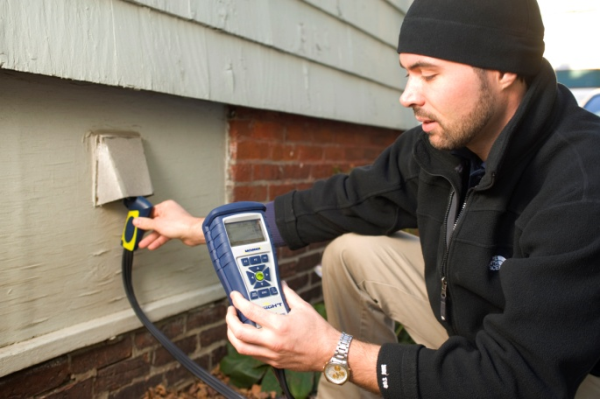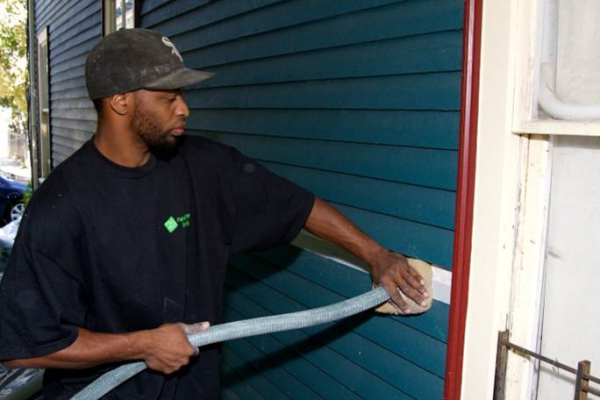Most recent climate action report adds another measure of accountability to the mix
Carbon Free Boston, the latest in a series of climate action reports released in Massachusetts, further affirms...

The American Council for an Energy-Efficient Economy (ACEEE) released the 2013 City Energy Efficiency Scorecard, a report that ranks 34 of the most populous U.S. cities on policies to advance energy efficiency. Boston took top honors doing the most to save energy! Other top-scoring cities include Portland, Oregon, New York City, San Francisco, Seattle and Austin.
"Local governments have great influence over energy use in their communities and many have initiatives that result in significant energy and cost savings," said Eric Mackres, ACEEE's local policy manager and the report's lead author, commenting on key findings in the report.
Cities were evaluated on what actions they are taking to reduce energy use in five key areas: buildings, transportation, energy and water utility efforts, local government operations, and community-wide initiatives. Boston was ranked highest, and it is easy to see why. It has run several successful sustainability programs through Greenovate Boston, a collective movement to reduce the city’s greenhouse gas emissions 25% by 2020.

Mass Energy’s executive director, Larry Chretien, at Renew Boston event with former mayor Tom Menino.
One of the most notable Greenovate programs, Renew Boston, is a city initiative helping Boston residents and businesses save energy and money. Created in 2009, the program is an innovative network of City government, energy efficiency and alternative energy service providers, local utilities, non-profit partners, and other business partners.
Renew Boston provides eligible Bostonians with no-cost home energy assessments and incentives for energy efficiency upgrades including insulation, air sealing, and efficient heating systems. To date, the Renew Boston program has assisted hundreds of businesses and residential homes to weatherize, resulting in major energy savings for Boston residents and business owners.

Mass Energy employs two Renew Boston outreach team members, and conducts community outreach for the Renew Boston program with focus on ‘hard-to-reach/hard-to-serve’ populations including landlords and tenants, moderate income families and households that speak languages other than English. The team coordinates outreach activities such as canvassing, tabling, lawn sign distribution, social media, mailings and emails, press events, word-of-mouth, referrals, workshops, events, and presentations. So far, Mass Energy has trained and mobilized over 100 community partners to promote Renew Boston.
The Mass Energy team consists of Meredith Geraghty, Landlord & Tenant Coordinator, and Loie Hayes, Neighborhood Network Coordinator.
“We do our best to make it easy for people to start saving energy,” says Geraghty. Geraghty mainly promotes Renew Boston to landlord and tenant populations, providing coordination, customer service and advocacy for 2-4 unit buildings interested in saving energy. For Geraghty, making sure families and individuals benefit from energy efficiency is a priority.
A no-cost home energy assessment is the first step to saving energy and money through Renew Boston. Individuals can save 5-30% of their energy bill by making efficiency upgrades identified in their home energy audit. A comfortable home is an energy-efficient home. Upgrades to make a home energy efficient are tailored to the specific needs of a family. For instance, air leaks are usually the biggest source of energy loss in a home, and sealing those gaps is one of the quickest ways to make homes more comfortable and efficient.
Another part of Geraghty’s focus is promoting the Whole Building Incentive, a project exclusive to Boston that addresses communication between landlords and tenants, who split the benefits of a program like Renew Boston, and improves renter’s access to Renew Boston services. The Whole Building Incentive is a service provided by Renew Boston, NSTAR and National Grid. It reduces the cost for energy efficiency improvements in two and three family homes by offering 90% off insulation improvements (up to $3,000 per unit) and other incentives to remediate common pre-weatherization barriers. This program accompanies the usual no-cost energy assessment that Renew Boston provides to all participants.
“With the Whole Building Incentive, the City of Boston is leading the way in the energy efficiency industry to address the challenge that landlords must pay for energy efficiency upgrades, but tenants receive the immediate benefits. I hope in the future this model will be adopted across the whole state of Massachusetts.”
In 2013, Renew Boston has assisted with 6,452 Home Energy Assessments and completed 1,581 weatherization jobs. The total amount of estimated energy savings from all Renew Boston work in 2013 is 209,989 mmBtu.

Loie Hayes, Neighborhood Network Coordinator, is responsible for building and maintaining Renew Boston’s network of community partners, whose participation has made Renew Boston such a huge success. Currently, Loie has been focusing on meeting with community-based organizations with experience conducting outreach within linguistic minority communities. Her outreach expands to the Mayor’s Office of New Bostonians where they discuss how to better deliver Renew Boston services to those who are not fluent in English. These discussions include an assessment of the program’s experiences conducting non-English outreach to-date and how to best serve non-English-fluent communities.
For Hayes, a long-time activist with the Boston Climate Action Network and other groups, creating non-English-speaking communities which are well-informed on energy efficiency will be the end result of targeted outreach. “I believe that once we improve the program’s ability to serve non-English-speakers, we will be able to use word-of-mouth within those linguistic communities to increase the program’s reach to these hard-to-reach, hard-to-serve households,” says Hayes.
To learn more about Mass Energy’s other energy efficiency programs, call Mass Energy’s team at 800-287-3950 x5.
Carbon Free Boston, the latest in a series of climate action reports released in Massachusetts, further affirms...
Earlier this month, Boston's Mayor Walsh called for cities around the country to explore a group purchase of...
Comments